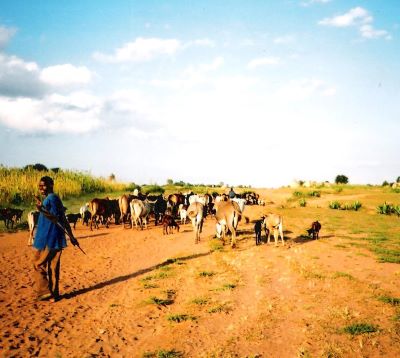by Sr. Ruth Percival MMM England/Ireland 12.12.2022
 Until recently, Advent spoke to me of gentle longing, hushed expectancy. It spoke of dark winter nights during which it was easy to journey back to Nazareth and stay reverently with Mary. Pondering, wondering and waiting.
Until recently, Advent spoke to me of gentle longing, hushed expectancy. It spoke of dark winter nights during which it was easy to journey back to Nazareth and stay reverently with Mary. Pondering, wondering and waiting.
Then I was assigned to Tanzania, to Makiungu which is in the semi-desert area of Singida. I left Ireland at harvest -time and arrived in Makiungu at the height of the dry season. The plateau on the edge of the great rift valley wall is very sandy, with patches of scrub and fascinating rock formations. The people are mainly subsistence farmers and I vividly recall the beautiful way they received me into their life, their interest in me: where did I come from, what crops do we grow, what do we eat? I recall how eagerly they awaited the “rains” and I soon learnt from which direction I could expect the big rain clouds!
Then, one day in late November, the beginning of Advent, the clouds came, and the rain fell. It thundered onto the rocky ground and within minutes, rivulets were coursing down from the direction of the airstrip. Almost perceptibly small shoots of grass appeared, then, with days, tiny flowers: the miracle of Advent was unfolding. In the words of Isaiah, ch.35:
“Let the wilderness and the thirsty lands be glad
Let the desert rejoice and burst into flower,
For water springs up in the wilderness
And torrents flow in the dry land.”
And thus, this tremendous season of preparation for the coming of Christ which marks the beginning of the Church’s year took on a deeper meaning. During Advent, we prepare to receive Christ anew into our hearts and more deeply into our being. We long for him, his life and his peace. Many times, we long simply for the desire that he will be the centre of our thoughts and our strivings. We long to be absorbed into the mystery of the Incarnation and how gently “he who is” comes to us. Since time began, God has been coming to his people. He was promised and foretold by the prophets until one day, in the words of St. Luke’s gospel, we read:
“And while they were there (Bethlehem), the time came for her baby to be born and she gave birth to a son.”
Somehow, out there in my semi-desert home, I saw clearly how often we are like that sandy, rocky place – dry, unyielding, hard, and yet – what potential! We have been created by a Father of infinite love who wants this love to live and love in us. This is so that we infinite beings might begin to grasp such an unfathomable mystery without being overwhelmed by it. God became human in Christ at Bethlehem.
When the rain came to Makiungu, the scenery changed radically. What had previously been barren was now green. The people were so happy, for their store of food had been running low. Now they began to cultivate and to plant. Within weeks, the corn and the millet were standing several feet high, and their supply of food was assured. I feel so many of us are happy to live through Advent and Christmas as though the goal was achieved and yet Christ was born to live, to live and to die, and to rise again. As a Christian, I must follow him from Bethlehem to Jerusalem and beyond.
Isaiah in chapter 41 reads:
“The wretched and poor look for water and find none,
Their tongues are parched with thirst:
But I the Lord will give them an answer,
I the God of Israel will not forsake them.”
And the psalmist in psalm 71 says:
“For he shall save the poor when they cry
And the needy who are helpless,
He will have pity on the weak
And save the lives of the poor.”
Yes, indeed, each of us is poor and thirsty. This infinite loneliness of spirit is not mine alone and yet Christ has already come. He has already brought the Good News and never before has creation been in such a need of hearing it, of opening its heart to this message of love. Yet, even as we think on these things, some of our brothers and sisters are being tortured, and are dying for what they believe. Many do not know justice and peace, and the cry of the poor is becoming louder and more terrifying.
Thus, in the quiet of my heart I come before the Father and ask forgiveness for the way I have hampered his message of love, justice and peace. I ask that he burn out of each of us those things which are keeping us from making a radical commitment to Christ in the Church today.
“Come to us, Lord, and bring us peace, we will rejoice in your presence and serve you with all our heart.” (Advent antiphon)
